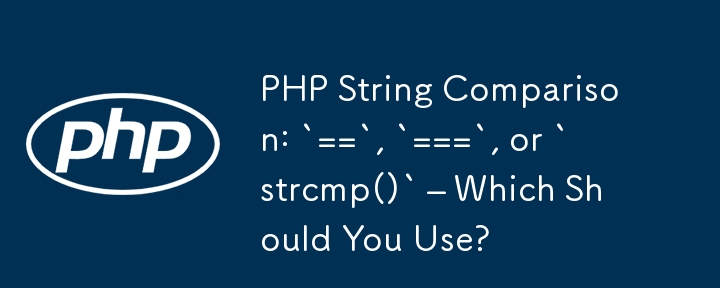

When comparing strings in PHP, several options are available: '==', '===', and 'strcmp()'. Here's a closer look at their differences.
The '==' operator performs a loose comparison, meaning it ignores data types. Therefore, '1' == '01' evaluates to true, as both strings represent the same numerical value.
The '===' operator, on the other hand, performs a strict comparison considering both data types and value. '1' === '01' would evaluate to false.
The 'strcmp()' function returns an integer indicating the result of comparing the two strings. A negative value means that the first string is less than the second string, a positive value indicates the first string is greater, and 0 means the strings are equal.
The appropriate choice depends on the specific application:
In the example you provided:
if ($password === $password2) { ... }This is generally safe for comparing passwords. However, if case-insensitive comparison is required, consider using 'strcmp()' with a case-insensitive flag.
The above is the detailed content of PHP String Comparison: `==`, `===`, or `strcmp()` – Which Should You Use?. For more information, please follow other related articles on the PHP Chinese website!
 Characteristics of management information systems
Characteristics of management information systems
 direct3d function is not available
direct3d function is not available
 The difference between mui and vue
The difference between mui and vue
 linux view process
linux view process
 How to change the font color in dreamweaver
How to change the font color in dreamweaver
 How to turn off windows security center
How to turn off windows security center
 What is the difference between blocking and deleting on WeChat?
What is the difference between blocking and deleting on WeChat?
 What are the software for learning python?
What are the software for learning python?




